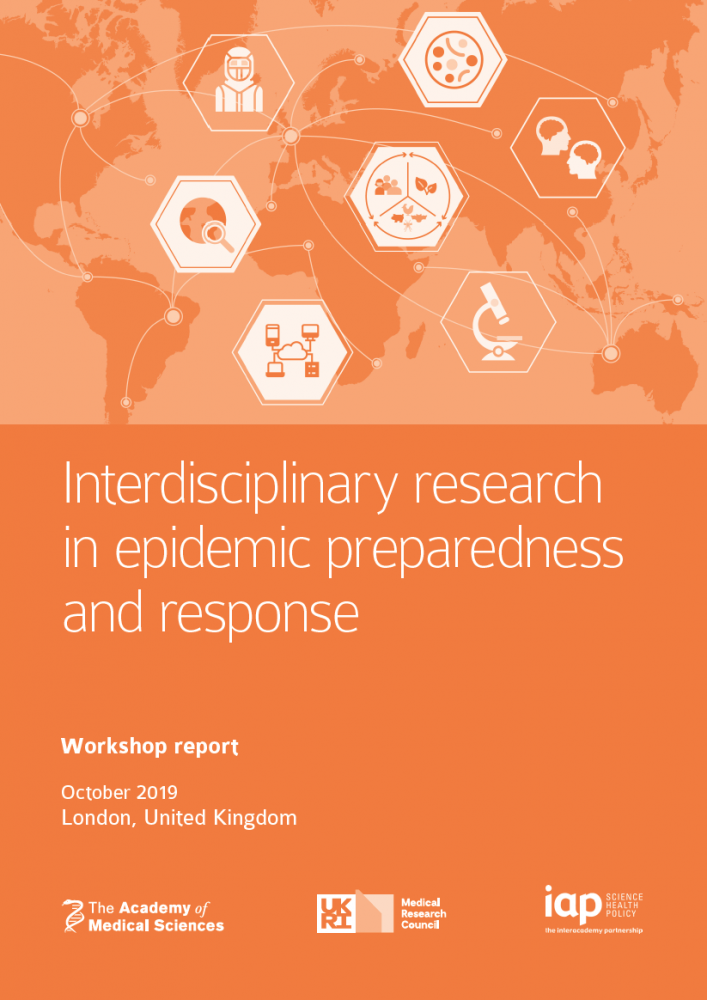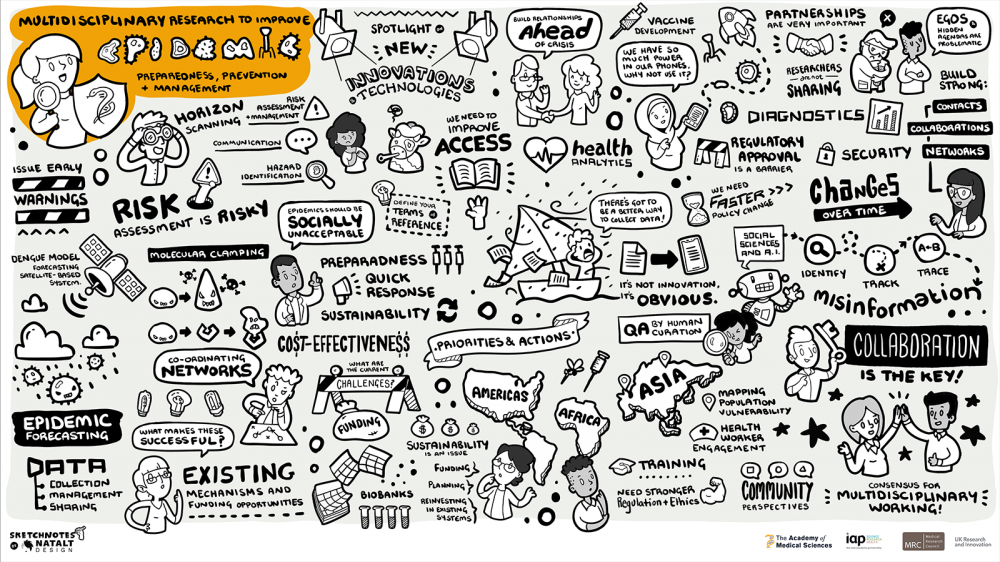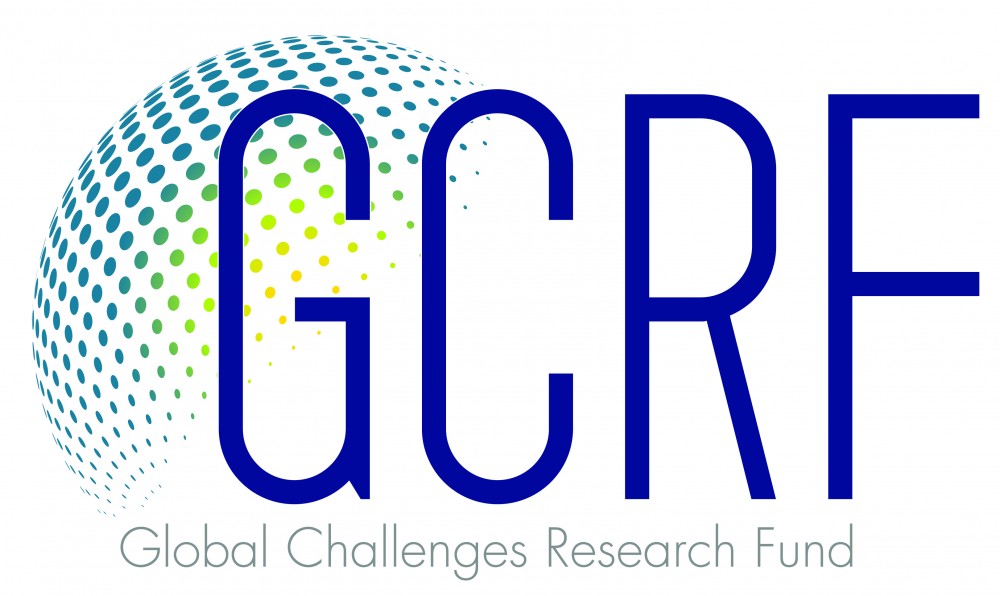The Academy of Medical Sciences, InterAcademy Partnership for Health and the Medical Research Council convened a policy workshop on Interdisciplinary research in epidemic preparedness and response in London on the 2-3 October 2019 funded by the Academy, through the Global Challenges Research Fund, and the MRC.
Status: CompletedInterdisciplinary research in epidemic preparedness and response
This two-day workshop of key LMIC, UK and other international stakeholders stimulated thinking around the vital research evidence required to better prepare, prevent and respond to epidemics, particularly where these arise in poorly resourced countries (LMICs).
 A meeting report was produced and disseminated to UK and global stakeholders. This report outlines the need for interdisciplinary research to strengthen epidemic preparedness and response.
A meeting report was produced and disseminated to UK and global stakeholders. This report outlines the need for interdisciplinary research to strengthen epidemic preparedness and response.
The report can be downloaded from the downloads tab on the right hand side of this page or by clicking on this image.
The 21st Century has already seen a number of devastating epidemics of diseases including Ebola, MERS, Zika and Nipah. Epidemics are defined by the complex interactions between microbes, people, animals and ecosystems, and factors such as increased global mobility, population density and climate change are contributing to the rise of epidemics caused by emerging and re-emerging infectious diseases. They have serious social and economic consequences and recent examples serve as a timely reminder of the need to prioritise epidemic preparedness, which will in turn strengthen epidemic response.
In its first annual report ‘A world at risk’ published on 18 September 2019, the Global Preparedness Monitoring Board recognised that preparedness can be viewed through several different lenses including governance and coordination, country preparedness capacities, research and development, community engagement and trust, and finance. It is now widely accepted that research is a key component of epidemic preparedness and response, and developments over recent years, which build on lessons learnt from recent outbreaks, include several initiatives to prioritise and coordinate epidemic research.
It is also recognised that many research disciplines including fundamental scientific research, social sciences, ethics, epidemiology, ecology, ‘One Health’ approaches, product development and clinical research – to name a few – contribute to understanding and stopping these infectious disease outbreaks, and that currently the different disciplines and the insights they identify are not well-integrated.

This two-day workshop of key LMIC, UK and other international stakeholders stimulated thinking around the vital research evidence required to better prepare, prevent and respond to epidemics, particularly where these arise in poorly resourced countries (LMICs). The workshop focused on ensuring that coherent, interdisciplinary research informs integrated, multisector epidemic preparedness and response.
By bringing together expertise from all regions of the world, especially from LMICs at risk of epidemics, the aims of the workshop were to:
- Provide the opportunity for networking between key stakeholders from different geographical regions and sectors including policy makers, researchers (across a disciplinary spectrum), clinicians, funders and NGOs, and a platform to share experiences and lessons learned.
- Identify the challenges and barriers to effectively prevent and manage epidemics and consider where and what research evidence is necessary to help address these challenges.
- Agree on a list of interdisciplinary research priorities and solutions to the identified challenges and gaps, which can be taken forward to improve epidemic preparedness and response on a global, country and regional level.
Watch our short animation which summarises the discussion and proposed actions to promote interdisciplinary research in epidemic preparedness and response:
Click here to find out more about our previous GCRF workshops and read the workshop reports.

This workshop is funded by the Global Challenges Research Fund that aims to support cutting-edge research that addresses the challenges faced by developing countries. Visit our GCRF webpage to read more about the fund.
Key contacts
Elizabeth Bohm
Head of International
Tel: –
View staff bio